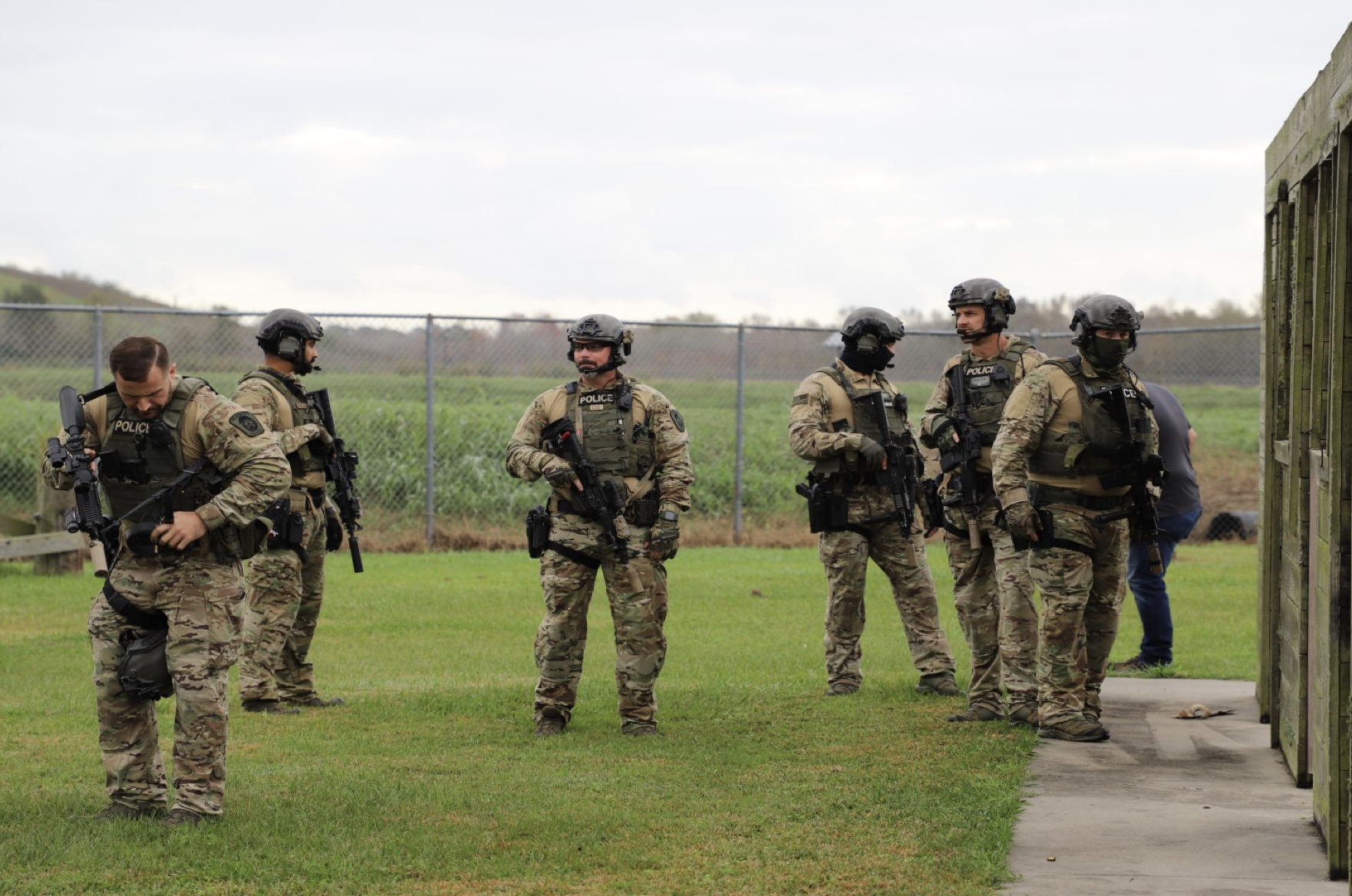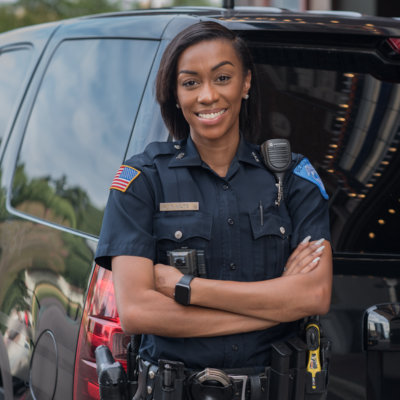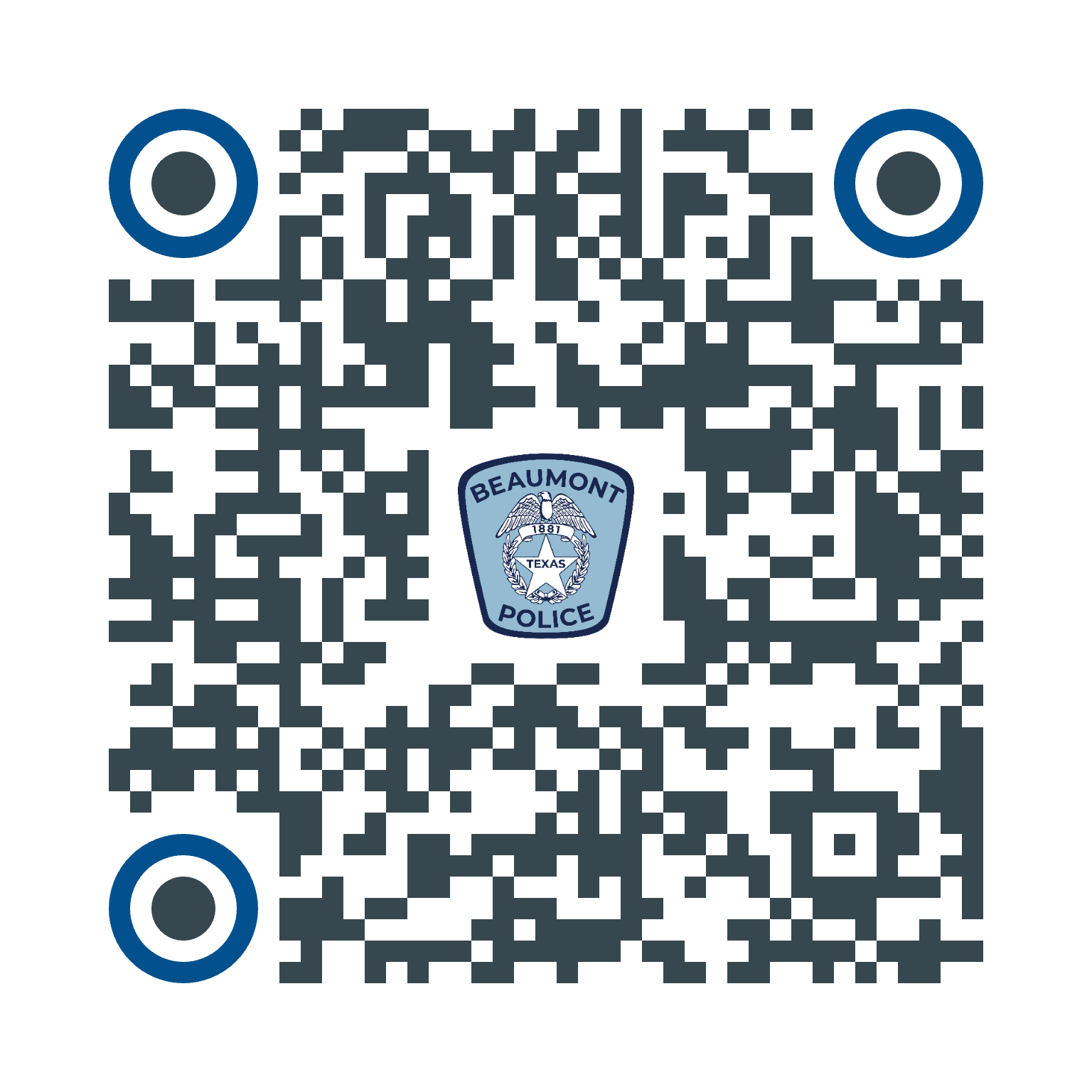PAY AND BENEFITS
Current Police Officers:
Signing bonus – $2,000 per year of experience as a licensed law enforcement officer. Up to $10,000
Starting Pay $76,656 – with pay scale compression to 10 years.
Lateral pay scale transfer for up to 10 years of law enforcement service at the BPD’s pay scale – up to $97,848.
New Officers: Starting Pay $76,656
Benefits of BPD:
- Specialized Units
- Career Advancement Opportunities
- Modern Training Programs
- Cutting Edge Equipment
- Compressed Pay Scale
- 10 hour shifts (4 days on 3 off)
- Paid vacations, holidays, & sick leave
- Health, dental, vision, & life insurance
- TMRS Retirement Plan
JOB QUALIFICATIONS
Current Police Officer Applicants: Applicants must have a current license as a Peace Officer in the State of Texas (TCOLE)
Police Cadet Applicants: High School Diploma or GED
Additionally,
- Must be over the age of 21.
- Must be a U.S. citizen.
- Must never have been convicted of or received community supervision for a Class A Misdemeanor or Felony.
- Must not have been convicted of or received community supervision for a Class B Misdemeanor within the past 10 years.
- Must pass the Job Related Abilities Test (This involves an obstacle course, handcuffing
- exercise, victim rescue, weapons test, vehicle push, and tire change. It also includes report writing, and the entry level examination, which tests spelling, math, and reasoning abilities— see pages 12-14)
- Must have a valid driver’s license and proof of liability insurance.
- Driving record should reflect prudence and maturity.
- Must agree to a complete background investigation.
- Must have a stable credit history and employment background.
- Must agree to a complete physical examination, including drug screen.
- Must pass a polygraph exam.
- Must agree to psychological testing.
- Must be eligible to attend the Regional Police Academy at the Lamar Institute of Technology.

Tattoos and Body Modifications: All tattoos located on or above the neck are required to be covered. Officers are not required to cover tattoos below the neck, with exception to offensive tattoos. This includes, but is not limited to: racial, sexual, discriminatory, gang related, obscene language or anything deemed inappropriate by the Chief of Police. Body piercings of any kind shall not be displayed with the exception of one set of earrings.
For more extensive information regarding disqualifications, see the entire Recruitment Guide.
JOB DESCRIPTION
A police officer is a first responder (sometimes the only responder) who provides assistance, counseling, guidance, enforcement of laws, protection and service of all kinds within his/her jurisdiction. The nature of the events encountered by a police officer often requires immediate action (or reaction) regarding a situation or event. Without immediate action (or reaction), lives and/or property may be lost.
A police officer works in physical conditions that require constant sitting, seeing, speaking and driving. They frequently stand, walk, kneel, crouch, squat, twist body, lift heavy objects and people, push vehicles and write by hand. They infrequently crawl, climb, run, fight and wrestle. A police officer also works under conditions that can be stressful.
Essential job functions include, but are not limited to:
- Entering and removing injured people from wrecked vehicles or other places of danger.

- Physically moving wrecked or stalled vehicles or other material out of traffic lanes.
- Apprehending persons suspected of crimes, including persons who violently resist arrest, necessitating use of such physical force that is necessary to overcome their resistance, secure them, place them into a vehicle for transportation to a confinement facility, and then place them in the confinement facility.
- “Breaking” up fights, i.e., disturbances in restaurants, bars, homes, sporting events, activity centers, etc.
- Defending citizens, fellow officers and yourself from immediate violent physical attack.
- Chasing and apprehending fleeing law violators.
- Rescuing individuals from hazardous situations, including fires, water, etc.
- Securing, lifting, transporting property including, but not limited to, evidence, stolen or recovered property which may range in size from as small as a coin to as large as a safe.
- Exercising skills needed to type reports or enter data into mobile data terminals or computers.
- Check, investigate and secure physical facilities/property that may be at the scene of a crime, including, but not limited to, activities such as climbing ladders, crawling through windows, climbing over fences (wood, chain link, barb wire, etc.), exercising good “night vision,” crawling into attics and exercising all other related physical skills and dexterity.
- Exercising the physical and mental skills needed to fully utilize any equipment or “tools of the trade”, including, but not limited to, mechanical striking or control items (baton, handcuffs, radio, chemical spray, firearms, etc.)
- Ability to safely operate a vehicle, quickly exit the vehicle, ride in the vehicle for short or extended periods of time, use vehicle equipment, including, but not limited to, radio, mobile data terminal, emergency equipment, change tire on vehicles, etc.
- Ability to fully and completely participate in training, including, but not limited to, firearms training, physical combat/self-protection training, use of physical and chemical defense devices, physical fitness, etc.
- Ability to exercise rational judgement and maintain emotional stability under working conditions that can be stressful.
STAGES OF THE HIRING PROCESS
Once the job posting is published for the position of Police Officer or Police Cadet, the applicant may fill out an online application. Visit www.beaumonttexas.gov and click “Find a Job”. To apply in person, go to The City of Beaumont Personnel & Benefits Department (located at Beaumont City Hall, 801 Main Street, suite #135).
Applicants will be notified by using the contact information that was provided on the online application for the scheduling of the JRAT. The JRAT consists of written and physical testing. The physical testing includes an obstacle course, handcuffing exercise, victim rescue, weapons test, vehicle push, and tire change. The written exam is multiple choice and covers reading comprehension, grammar and syntax, punctuation, spelling, vocabulary, arithmetic, and differential decision making. A writing exercise will also be completed.
The objective of the background investigation is to verify that the applicant is of good moral character. Applicant must render credible testimony in order to determine their integrity, honesty, and truthfulness.
The applicant is asked a series of oral questions by a board comprised of Beaumont Police Officers.
The polygraph examination is used to detect deception of an applicant.
Applicants selected for employment will be required to take a medical/physical exam in order to determine the individual’s health in relation to their ability to perform tasks which a police officer may be required to perform. This is a COMPLETE examination including but not limited to chest X-rays, EKG, and EEG. The vision test required must show the vision correctable to 20/20 in each eye. A drug screening test is also required. The physical examination is not limited to these examples.
Written and oral tests are administered by a licensed psychologist. The evaluation is designed to identify and reject those applicants who are emotionally unfit for the position of Police Officer. Psychological exams are also given to those applicants who are licensed but have not been commissioned within 180 days from the date of employment.
Pending the successful completion of all the previous phases, your application file will go through a final review process and be submitted to the Chief of Police for final approval. Placement into the Regional Police Training Academy is contingent upon passing all eight hiring stages and the availability of positions in scheduled cadet classes.
REJECTIONS AND DISQUALIFICATIONS
Due to the high standards demanded by the Beaumont Police Department, there are a number of reasons why an applicant may be disqualified for employment. The following is a partial list of common disqualifiers:
- Failure to pass any part of the entrance examinations and/or failure to successfully demonstrate his/her ability to read, write and fluently speak the English language.
- Failure to meet minimum standards for initial licensure set forth by the Texas Commission on Law Enforcement for peace officer candidates.
- Applicant is not a citizen of the United States of America by birth or naturalization. The applicant shall be disqualified until citizenship is obtained in compliance with federal laws.
- Applicant is unable to perform the essential functions of the position to which he/she seeks appointment; with or without reasonable accommodation.
- Applicant has engaged in, received deferred adjudication or pre-trial diversion for, or has been convicted of a Class B misdemeanor under Texas or federal law, to include the Uniform Code of Military Justice (UCMJ) in the past ten (10) years.
- Applicant has engaged in, received deferred adjudication or pre-trial diversion for, or has been convicted of conduct which constitutes a Class A misdemeanor or any class of felony under Texas or federal law, to include the UCMJ.
- An applicant shall not be considered for employment while charges are pending for any criminal offense or while he/she is currently on probation for any offense other than a Class C traffic offense.
- Applicant has made a false statement in any material fact; withheld information, practiced or attempted to practice any deception or fraud in his/her application, examination or appointment.
- Applicant has engaged in conduct which constitutes excessive use of intoxicants, including alcohol.
- Applicant has used not used illicit substances as indicated by the following guidelines:
- No marijuana use within one (1) year
- No use of other controlled substances or dangerous drugs within three (3) years preceding the date of the application. However, the Chief of Police may — using the “wholeperson concept” — allow an applicant to continue in the process after considering drugs used, recency of drug use, the total number of usages, the applicant’s age at last drug use, and circumstances surrounding the use.
- Use or delivery without remuneration of any medically prescribed drug for purely medicinal purposes will not be used to disqualify an applicant.
- Applicant has engaged in conduct which constitutes abuse of legally obtained prescription medication(s) or illegal use of prescription medication(s) of another person.
- Applicant has engaged in a DWI/BWI/FWI/DUI, within the past five (5) years, or has more than five (5) traffic charges (moving violations) within the past five (5) years.
- Applicant has been dismissed or resigned in lieu of dismissal from any employment for inefficiency, delinquency or misconduct.
- Applicant has demonstrated a failure to pay just debts. Due to many variables involved, each situation shall be considered on a case-by-case basis. Just debts include mandated child support.
- Applicant has exercised poor judgment skills within the past five (5) years. The applicant has demonstrated either immaturity or poor judgment in his/her decision making process.
- Applicant has a history of unstable work evidenced by frequent changing of jobs for no apparent reason (excluding seasonal, student or contract work).
- Applicant has never received a “Dishonorable Discharge” from the armed forces of the United States. A Dishonorable Discharge will be a bar to licensure.
FREQUENTLY ASKED QUESTIONS



